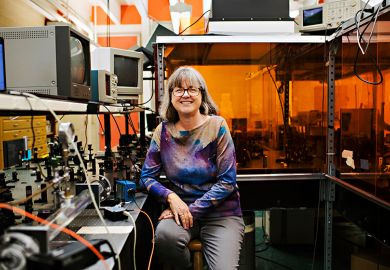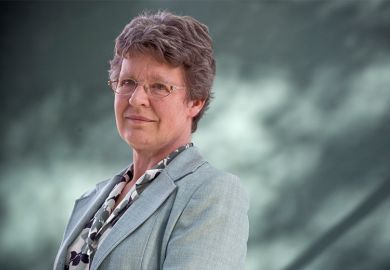Like many female academics, I rejoiced at the announcement that Donna Strickland had won the Nobel Prize in Physics. However, my joy turned into disappointment after some declarations that she has made to the press.
Strickland told Times Higher Education that “obviously the conversation [about women succeeding in science] has to keep happening, to keep making things move forward, but I’m not frustrated...I’m not someone who believes we have not made progress.”
Strickland seems blissfully unaware of the frustrations that other women experience, as documented in endless articles (for example, “9 Women In STEM Share The Challenges They've Faced In A Male-Dominated Field”), where the obstacles range from sexual harassment to unconscious bias and everything in between.
Ironically, Strickland was even “worried” that the focus on her gender was “taking away from the two men that won, because obviously it’s a great accomplishment for them, too” – as if being the first woman to win for 55 years was not justification enough to focus on her gender.
But then, as she admitted at a press conference, she was surprised to learn that she was only the third woman to receive the honour in physics. "Is that all, really? I thought there might have been more," she said.
Strickland is graciously dismissive of some of the “funny” comments about her physical appearance. Mary Beard, who has faced vitriolic online abuse, could teach her a thing or two about how insensitive comments on physical appearance are.
Perhaps Strickland finds equally “funny” a 2013 video of fellow researcher and Nobel laureate Gérard Mourou and a male colleague dancing in a lab surrounded by female students, some of whom do a striptease.
Sexism and toxic power relations in STEM (and academia at large) are alien concepts for Strickland who, in her interview with THE, describes Alessandro Strumia, the professor who told an audience, mostly comprising female physicists, that “physics was invented and built by men” as merely a “sad person, an outlier”.
Strickland has also no time for getting involved in the democratic life of her institution and taking the responsibilities that a full professorship entails. She admits with candour that she was simply too lazy to do it and did not even consider a professorship a promotion.
More worryingly, Strickland finds it hard to view herself as a role model. While she has revealed some knowledge of women in STEM “having had problems”, because she hasn’t had them herself she concludes that: “I can't put myself in their shoes. So, I feel like I can’t really be a role model for people who have struggled that way.”
Strickland’s lack of interest in becoming a role model is a personal choice that one must respect. However, it is one that is difficult to understand and can be viewed as a missed opportunity.
One needs only to recall the example of the University of Dundee chancellor Jocelyn Bell Burnell, famously overlooked for the Nobel prize in 1974 while her male colleagues received the award. When she recently won a Special Breakthrough Prize in Fundamental Physics for her work in discovering pulsars, she donated the prize money to counter what she describes as the “unconscious bias” that she says still occurs in physics.
Burnell has been an inspiration to many women academics, not exclusively in STEM, and was one of the four female scientists whose efforts led to the creation of the Athena SWAN awards that recognise a commitment to advancing the careers of women in science and now in the arts and humanities, too.
Women might have made progress, as Strickland rightly believes, but with talent and its recognition should come responsibility and an awareness of the full equality that must still be achieved. Fifty-five years is too long a wait to celebrate another woman’s well-deserved success.
Anna Notaro is senior lecturer in contemporary media theory at the University of Dundee.
POSTSCRIPT:
Print headline: A duty to fight for equality
Register to continue
Why register?
- Registration is free and only takes a moment
- Once registered, you can read 3 articles a month
- Sign up for our newsletter
Subscribe
Or subscribe for unlimited access to:
- Unlimited access to news, views, insights & reviews
- Digital editions
- Digital access to THE’s university and college rankings analysis
Already registered or a current subscriber?




